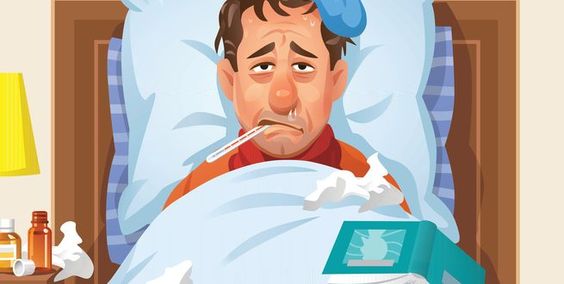How to Treat Flu at Home as an Individual
Publicado por NiuKevin em
How to Treat Flu at Home as an Individual
The severe flu in 2019-2020 has reached its peak and cases have gradually decreased. However, reports from the US Centers for Disease Control and Prevention show that influenza activity remains high.
According to the data reported on February 24, the Centers for Disease Control and Prevention said that the hospitalization rate is similar to that of 2014-2015. This is another highly serious season. H3N2 influenza A is the main epidemic strain. The effectiveness of this year's influenza vaccine against H3N2 is only 25%, but it is still higher than the 10% and 17% effectiveness estimates reported by Australia and Canada respectively.
According to the report of the CDC, the vaccine has an efficacy of 67% against influenza A H1N1 strain and 42% against influenza B virus. Although these higher vaccine efficacy levels certainly helped, the problem was that 69% of the reported cases were caused by H3N2.
The CDC continues to recommend flu vaccines for all people 6 months and older because the flu may last for several weeks. As of this report, 114 children died of influenza-related causes this season. The CDC had previously estimated that this flu season may cause a total death toll of 50,000 people when calculating mortality rates for all age groups.

How to Treat Flu at Home as an Individual?
First, individuals should make sure that they are not members of a high-risk group and that they are more likely to develop severe flu symptoms. If you are not sure whether you are a high-risk person, please consult your doctor. If a person is healthy and has no underlying disease or condition (eg, asthma, lung disease, pregnancy, or immunosuppression), the CDC recommends home care.
Increased fluid intake, warm showers and warm compression, especially in the nasal area, can reduce body pain and reduce nasal congestion or head congestion. Nasal bands and humidifiers may help reduce congestion, especially when trying to fall asleep. Some doctors recommend nasal irrigation with saline to further reduce congestion; some recommend over-the-counter decongestants such as pseudoephedrine (Sudafed). Fever can be treated with over-the-counter acetaminophen (Tylenol) or ibuprofen (Advil, Motrin, etc.); read the safe dose of the label. Cough can be suppressed by cough suppressants, over-the-counter cough syrups, or cough medicines that may contain dexmethamine and/or guaifenesin (Mucinex). If the symptoms of a person in your home worsen, please inform your doctor.
